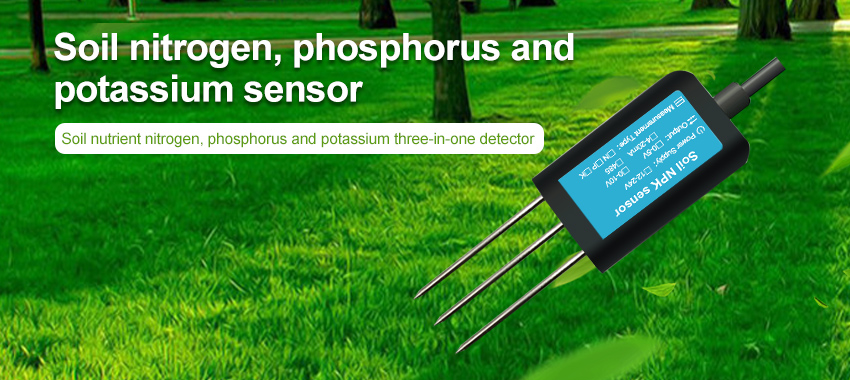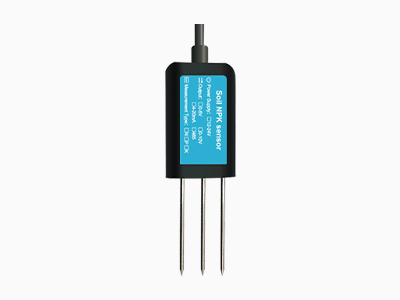Understand the soil NPK sensor
Precision agriculture is the future of farming, and soil NPK sensor are one of the most important tools for achieving this. These sensors measure the levels of nitrogen, phosphorus, and potassium in the soil, which are essential nutrients for plant growth. By providing accurate and real-time data on soil nutrient levels, farmers can optimize their fertilizer applications, reduce waste, and increase crop yields.

Traditional method of fertilization
The traditional method of fertilization involves applying a uniform amount of fertilizer across a field. However, this approach can lead to over-fertilization in some areas and under-fertilization in others, resulting in decreased yields and environmental damage. Soil NPK sensors provide farmers with a more precise understanding of soil nutrient levels, allowing them to tailor their fertilizer applications to the specific needs of each area of their fields.
Working principle of Soil NPK Sensor

Soil NPK sensor work by using various technologies to measure the concentration of nitrogen, phosphorus, and potassium in the soil. Some sensors use electrical conductivity to measure ion concentration, while others use optical sensors to measure the color of the soil, which is an indicator of nutrient levels. These sensors can be installed in the soil or mounted on equipment such as tractors, allowing farmers to collect data quickly and easily.
The key benefits of soil NPK sensor
One of the key benefits of soil NPK sensors is their ability to save farmers money on fertilizer costs. By providing accurate data on soil nutrient levels, farmers can avoid over-fertilizing their fields, which can be expensive and harmful to the environment. In addition, soil NPK sensors can help farmers reduce their water usage by optimizing their irrigation practices based on soil moisture and nutrient levels.

Another benefit of soil NPK sensors is their ability to improve crop yields. By providing plants with the right amount of nutrients at the right time, farmers can increase the health and productivity of their crops. This not only leads to higher yields but also improves the quality of the crops, making them more valuable in the marketplace.
In conclusion, soil NPK sensors are a revolutionary tool for precision agriculture. By providing farmers with accurate and real-time data on soil nutrient levels, these sensors allow farmers to optimize their fertilizer applications, reduce waste, and increase crop yields. With the adoption of this technology, farmers can improve their profitability, reduce their environmental impact, and contribute to a more sustainable future for agriculture.
